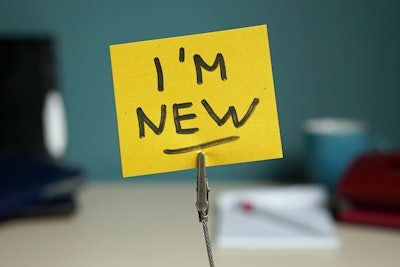
In a recent conversation with BizBash, Lydia Jeffress, the senior group sales manager for the 219-room Four Seasons Hotel Philadelphia, points out how many new faces she’s seeing in the events industry these days. “So many of us questioned our roles during COVID—and I think that led a lot of people to explore new opportunities,” she explains. As a result, she’s finding a lot of newer planners working on events, or even seeing the role delegated to executive assistants or HR professionals who may not be as seasoned.
Due to the shift, Jeffress says, “it becomes our job to be the expert.” She makes it a point to offer guidance during every step of the process, helping planners think of things they may not have considered. “For example, if they say they need a meeting room with natural light, I know there’s probably a need behind the need," Jeffress notes. "Are they demoing a product, and are requesting natural light to showcase its little intricacies? Then I can suggest a more blank-canvas room that will really support that.”
She also likes making suggestions in areas like staff-to-attendee ratio, and room setup and flow. Even when a planner comes to her with a preferred setup, Jeffress likes to hop on a call and look for that need behind the need, asking questions like the demographics of the group and the ultimate goals of their interactions. “It’s about noticing the little things like managing the temperature in the room; maybe we have a few throws available if we notice someone has been cold," she adds.
Inspired by our conversation with Jeffress, we took to LinkedIn to ask #eventprofs what unexpected things they wish they’d known when they were first starting out—that nitty-gritty wisdom that only comes with years of experience. The advice quickly began pouring in. Here are some of our favorite responses...
Anh Nguyen, principal and co-founder, Spark Event Collective, Calgary
“1) Print badges double-sided so you don’t have to deal with the flipping badges where people can’t see other people’s names. 2) Use a song to indicate the end of the break so that over the course of your event, people become accustomed to that cue to go back to their seats. 3) Invest in a DYMO label maker for last-minute and on-site badge printing, and just throw out the sharpie. 4) Print a blank sign that has the event branding that you can add messages or last-minute announcements to on-site. 5) Look for speakers who are already in your city around your event dates, and you may be able to get them at a reduced rate.”
Laura Stomber, director of events, Insignia Events (Arizona Cardinals Football Club), Phoenix
“Have an ‘event box.’ Aside from the typical pens and paper, have Band-Aids, floss, clear nail polish for tight rips, extra scissors, bobby pins, safety pins, small one-time toothbrushes—basically any last-minute item you can ever think of. Not only for your staff but for attendees as well!”
John D'Adamo, events and tech expert, Cape Coral, Fla.
"1) Always, always run through all equipment (mics especially) with thorough testing with the AV team. Do not let them leave until you've done this. The last thing you want is your sponsor getting up to introduce a speaker and they aren't able to talk through the mic. 2) Make sure to have plenty of food on hand to feed your partners (photographers, videographers, AV, floral, entertainment, etc). With public-facing talent, make sure they get breaks. Take care of your partners, and they'll take care of you."
Kara McCaffrey, experiential group director, HMT Associates, Inc., Chicago
“If it's a multi-day event, switch your shoes from day to day. Even if they are the same shoes, but a different pair. Your feet will thank you for it. Buy Dr. Scholl's blister blocker in bulk. Always have necessities in the bathrooms, stocked and welcoming—anything from hygiene products to stain sticks.”
Victoria Matey, co-founder, Matey Events, Seattle
“1) Prep your speakers, even seasoned ones, to make sure their content is brain-friendly. Are they using the right font? Is there a good balance between text and images on their slides? Do they know how to reactivate people's attention? 2) Know how little tweaks can have a big impact, like red versus white beverage cups affecting coffee taste or curvy lines in the space making people feel more comfortable. 3) Lines kill anticipation. Get rid of the lines, or make them an experience.”
Rachel Heller, senior event content manager, GitHub, Boston
“Assume nobody is ever going to meet the deadlines you set, and add anywhere from three to five days of buffer if you can.”
Heather Rouffe, director of sales and managing partner, Atlas Event Rental, Boynton Beach, Fla.
“1) Floorplans are part of your job: Do you know how many planners think we don't need an event floorplan or only worry about the pretty side of the planning versus the logistics? 2) Know what your exact role is: Some planners get involved in the design and other planners know who to bring clients to for help. Knowing your exact role is key to success. 3) Always order extra: This is especially necessary for rentals and flowers—always be prepared for the what-if situation by having extra!”
Jordan Kaye, owner, Analog Events & Marketing, Los Angeles
“Event flow! No matter how many simulations, renderings, or discussions, getting a true sense of the flow of an event comes with on-site experience. Does check-in back up into the street because the security check is taking longer than expected and lines weren't accounted for? Are the bars placed too close to food stations that attendees back up into each other? Are attendees lost from one point to another from a lack of signage or direction? Really getting an understanding of the guests and their experience is so important to properly plan and address event flow and logistics.”
Megan Herfel, senior account manager, pc/nametag, Madison, Wisc.
“Order extra badges (roughly 5%-10%)! Someone always manages to spell their name wrong or comes in place of someone else. I would also say to have a trusty, lightweight, compact label printer. That can be used for many things on-site!”
Evan Babins, global events and experiences producer, Toronto
“Budgets will never be as negotiated. Clients will always throw surprise curveballs at you when you least expect it. Prepare for the unexpected.”
Lin Guba, conference and meeting manager, Elkridge, Md.
“Before your event website is live, sit down and walk through the process as if you were the attendee. Put yourself in their shoes. Do all the links work? Is the messaging consistent? Does the hotel reservation link work? Is anything confusing or unclear? Pretend you know nothing about this event. So many times we are so in the weeds, things that seem obvious to us just aren’t clearly spelled out. This will save so much time for everyone once the website is live.”
Kara Dickerson, vice president, strategic partnerships and conferences, Consumer Technology Association (CTA), Alexandria, Va.
“Make sure you have phone numbers—not just emails—for all of your speakers and they know how to reach you! Anything can happen with travel, traffic, weather, etc., and you need to be able to get to people quickly, and vice versa. Print out photos of VIPs checking into hotels or arriving at your speaker-ready room so staff knows who to look for. Prep your vendor partners on important items each day so they can be your eyes and ears on the ground!”
Adam Fillary, director of strategy, Meetings & Events Support Association (MESA), London
“How the weather affects an event—not just severe weather, but where people congregate, where to store umbrellas, and if they even show up.”
Nancy Sutta Berns, program manager, Conference Management Services, Inc., Morristown, N.J.
“This is very specific: If you have international attendees at your program, knowing where all local embassies are located can be helpful. Who would have thought that having the Portuguese Embassy down the street from our hotel in Boston would have been helpful when an attendee was backed over by an SUV in the front drive of the hotel? There's more to this story, but having those contacts there helped, in addition to all local resources I could employ.”
Annie Thompson, director of experiential and global merchandising, Bumble, Austin
“I like to design something in each event to all five senses to create some small, but meaningful, details. Break in your shoes. Bringing sugar/sustenance/water to your crew never fails. Take a moment to look at the work you did! Because chances are, it will be gone fast and at least some part of it (if not all) was hard to achieve!”
Erin Lacey, event producer, Erin Lacey Events, San Francisco
“Crisis management. Every event should have a robust crisis management plan that includes responses to a wide range of scenarios. Mine include everything from a speaker not showing up to a disaster shutting down the city. I create contingencies for everything and review it all in detail with the client, so we're completely aligned on how we would respond. Things are going to happen, so having a plan in advance is critical.”
MK Bedosky, co-founder and head of marketing, Gen City Labs, New York
“Lighting makes a huge difference, even in the most simple/corporate settings. Functionally, it’s about taking notes, reading badges, not having trip hazards. Design-wise, it adds warmth and branding and can segment a space to draw attention.”
Heather Reid, founder and CEO, Planner Protect, London, Ont.
“I've spent most of my 29-year planning career as a solopreneur—and one thing that I would do differently from the very beginning is always knowing what other independent planner was capable and available to fill my role in an emergency for each event I was responsible for. I was blessed that when my dad was in the hospital for 90 days at the end of his life and it was peak conference season, I had staff that took over. But had that happened a few years earlier, I wouldn't have. So my advice to solopreneurs: Always have planner A, planner B, and planner C as part of your risk mitigation strategy!”
Liz Lathan, co-founder, The Community Factory, and chief community officer, Team CMO, Hutto, Tex.
“Always have a list of extra tasks that need to be done but aren't a priority, so when someone comes up and asks if they can help, you have at least one thing you can hand off… [Also,] ask your registration team/hotel/convention center/F&B team/partners and suppliers to each give you one random cool fact at the end of the event. When you create your post-event report, adding in that 986 forks were used, 543 eggs were cracked, the longest distance an attendee traveled to be at the event was 6,422 miles, it took 350,400 man hours to create the event (which is the equivalent of one person working 24 hours a day, 365 days a year, for 40 years), and the production team drank 97 gallons of coffee in 36 hours always leaves little tidbits in your executives' minds that they will talk about forever."
Lyndsay Smith Gutierrez, catering sales manager, Giada Catering, Los Angeles
“Schedule something nice for yourself when it’s over—a massage or other spa treatment, decadent dinner, or something of the like. Not only will it help you recover, it gives you a little something to look forward to, and it’s so enjoyable knowing you earned it!”
Katie Sacco, director of event content, analytics, and strategic operations, Splunk, Alameda, Calif.
“Prepare in advance for what every bit of your space looks like when hundreds/thousands of people fill it and are moving around. Make drawings, even if just on scratch paper to discuss flow and directional choices. Strong partners at locations like hotels will be willing to turn on/reverse direction on escalators to meet your needs. As a newbie, it is difficult to visualize how 300 people using two escalators can impact the program running on time, frustrating your users and even [creating] fire marshall issues.”
Sara Stehle, owner, Wow Moments Experience & Event Design, Fairfax, Va.
“Sign up for every airline and hotel’s rewards points. Even if you don't think you will use them, if you are just starting out you should always be reaping the benefits of travel. And get a few things to always keep with you when traveling: headphones, an extra battery plug for your laptop, an external battery for your phone, a mini humidifier for your hotel room, a travel water bottle, a good piece of carryon luggage, and my holy grail—chapstick, nail clippers, a flash drive, and a pen to keep on you at all times during an event.”
Lisa Gregory, owner, Gregory Event Services, Portland, Ore.
“Have meetings specifically about attendee experience. What they will experience pre-event (reg, pre-event emails, inviting colleagues) to on-site (welcome speech, swag, buffet and food preferences, nursing mothers room, prayer room, how to load in a keynote room, what are they doing at night, what’s their experience if they don’t know anyone else, where are they storing their bag on the last day, how are they getting to the airport, what’s the last thing you want them to experience), after (collecting feedback, what do you want to provide or how do you want to interact with them next). Thinking of all of this upfront helps with budget planning, team resourcing, etc. Without it your executives will be asking what’s the plan for this and that—better to know the plan, even if the plan is to not have a plan!”
Natalie Lowe, president, Celebrate Niagara, and owner, The Sustainable Events Forum, St. Catharines, Ont.
“I think the big a-ha for me at about year 15 was: We are not saving people's lives here. I'll default to rule No. 6 in The Art of Possibility by the Zanders—don't take yourself so seriously, and surely do not take your event seriously enough to damage your mental or physical health. Have some perspective and priorities. Keep your sense of humor.”
Patti Spaniola, director of conferences and events, University of West Florida, Pensacola, Fla.
“Complete as many tasks as possible before the event so that there is time to deal with unexpected issues. Otherwise, there is not enough time to deal with the unexpected issues and things that should have already been done. Also, keep a wagon in the office so that when you think about something you need to bring, you can put it in there right away! It makes packing for the event so much easier and checks items off the list so they aren't forgotten.”
Jessica Gulledge, senior event marketing manager/inclusion, diversity, and equity lead, Amazon Web Services, New York
“Build inclusion and accessibility into every facet of your event, from the beginning. Make sure your team knows that inclusion is everyone’s responsibility. Is the event environment—including pre-event (event website, registration, comms) and on-site (badge pick up, expo, F&B, music/performer selection, games/activities, content sessions, transportation, seating, signage, on-site resources, etc.)—a welcoming and safe space for all attendees? Can everyone show up and participate in everything happening across the event, and feel comfortable doing so? Make equity and inclusion the deciding factors.”
Lindsay Stuebe, director, global events, Optimizely, Houston
“1) Make connections and build relationships in all areas of your organization. You'll be surprised how many times your ‘phone a friend’ in security, sales, legal, IT, marketing, HR, finance, etc. will save you. 2) Take care of your partners, and they'll take care of you—don't forget gratuities! 3) Enjoy the ride. You will look up one day and realize you're no longer the rookie—so be willing to share your tips, tricks, and mentorship with others!”



















